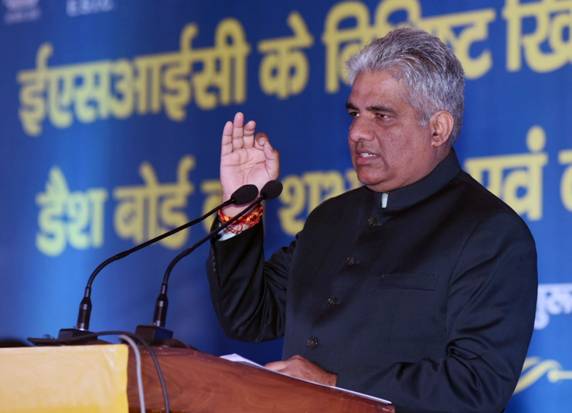Welcoming the Summary of Policymakers (SPM) and the Working Group III (WG3) contribution to the Sixth Assessment Report (AR6) of the Intergovernmental Panel on Climate Change (IPCC) released on April 4, Minister for Environment, Forest and Climate Change, Bhupender Yadav said in his tweet message that the historical responsibility of developed countries for consuming the carbon budget is scientifically established by the report, and called for the need of taking deep and urgent global emissions reduction.
The Report dealing with climate change mitigation and international cooperation is a major contribution of IPCC to the global fight against climate change. Stating further, Yadav said that the report fully supports India’s view on the necessity of public finance for developing countries and the need for scale, scope and speed in climate finance.
The report specifically notes: “Tracked financial flows fall short of the levels needed to achieve mitigation goals across all sectors and regions. The challenge of closing gaps is largest in developing countries as a whole.” It also states that public finance falls short of the Copenhagen (reiterated when the Paris Agreement was signed) goal of USD 100 billion per year by 2020.
On climate finance, the report states: “Accelerated financial support for developing countries from developed countries and other sources is a critical enabler to enhance mitigation action and address inequities in access to finance, including its costs, terms and conditions and economic vulnerability to climate change for developing countries.”
Among other important things the Report has underlined the need for deep and urgent global emissions reduction mentioning that four-fifths of the total carbon budget for 1.5 deg C temperature increase and two-thirds of the total carbon budget for 2 deg C warming has been already consumed.
Both cumulative and per capita annual emissions rose during the pre-2020 period. Pre-2020 emissions reduction in developed countries has been insufficient in comparison to the developing world’s needs for sustainable development. Both historical cumulative emissions and per capita annual emissions show that India’s role (as part of South Asia) is minimal.
The historical responsibility of developed countries for consuming the carbon budget is scientifically established by the SPM which has included following two figures to emphasize this point.
The report justifies India’s emphasis on equity at all scales in climate action and sustainable development. Equity is essential for
- The social and economic transformation required for climate mitigation,
- Manage the negative consequences of climate mitigation on vulnerable populations,
- Enable just transition towards low-emissions development,
- And ensure sustainable development.
India’s position that equity is fundamental to international co-operation on climate change is endorsed by the report. Report says: “Equity remains a central element in the UN climate regime, notwithstanding shifts in differentiation between states over time and challenges in assessing fair shares”.



